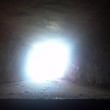What Life is Like When you Are not Alive
by Dr. Dennis Bonnette
Filed under Anthropology

Ever wonder what it is like to be in the next life, that is, to be dead? (I thought it best to leave the word “dead” out of the title of this essay.) Since this is something we all must face sooner or later, I thought it might be of interest to engage in some rational speculation about what a human being experiences, if anything, after he becomes unconscious for the last time. This is not a theological enquiry. So, depictions of hellfire and eternal bliss, though they may be... Read More
Is “Heaven” to Blame for Murder?
by Trent Horn
Filed under Heaven

A tragic story has been circulating around the Internet in the last few days about a Canadian man who allegedly murdered three of his relatives and then posted a confession about it on Facebook. According to NBCnews.com: "A father in Canada appears to have admitted on his Facebook page to killing his daughter, then wife, then sister before taking his own life. 'Over the last 10 days I have done some of the worst things I could have ever imagined a person doing,' read a post on Randy Janzen's... Read More
Answering 5 More Common Objections to the Resurrection
by Dr. Peter Kreeft
Filed under The Resurrection

NOTE: Christians around the world celebrated Good Friday and Easter last week, which commemorate the death and resurrection of Jesus Christ. Thus we began a six-part series on these events by Dr. Peter Kreeft in which he examines each of the plausible theories attempting to explain what happened to Jesus at the end of his life, particularly whether he rose from the dead. Part 1 - 5 Possible Theories that Explain the Resurrection of Jesus Part 2 - Rejecting the Swoon Theory: 9 Reasons... Read More
Molecules and Mourning

Materialism has always had a difficult time dealing with death, because it has to claim that death is not a big deal. If there is nothing more to life than the matter of the body, once the body dies there is nothing left to “experience” death. The ancient atomists were explicit in this claim, with Epicurus stating: "Death, therefore, the most awful of evils, is nothing to us, seeing that, when we are, death is not come, and, when death is come, we are not." While it is debatable how... Read More
Why Would God Allow Suffering Caused by Nature?
by Fr. Robert Spitzer
Filed under The Problem of Evil

NOTE: Today we begin a four-part series by philosopher Fr. Robert Spitzer addressing the question, "Why Would God Allow Suffering Caused by Nature?" Instead of focusing on the existence of moral evil, or suffering caused by the free choice of humans, he examines why an apparently good God would create an imperfect world replete with natural disasters, physical disabilities, and unavoidable heartache. The series will continue on each of the next three Fridays. It is somewhat... Read More
God in the Dock: Tragedy and Trilemma
by Dr. Bryan Cross
Filed under The Problem of Evil

The day after my son Joshua died, after the necessary funeral and burial arrangements had been made, I got into my car, drove aimlessly some distance, and finally parked in a relatively desolate place away from traffic, noise, and people. I turned the car off and began to talk out loud to God, but at a volume more accurately described with the term 'yell.' "Why? Why him? He had done absolutely nothing wrong. He most certainly didn't deserve this. He suffered so much over these last two... Read More
The Case for Life After Death
by Dr. Peter Kreeft
Filed under Anthropology

Can you prove life after death? Whenever we argue about whether a thing can be proved, we should distinguish five different questions about that thing: Does it really exist or not? "To be or not to be, that is the question." If it does exist, do we know that it exists? A thing can obviously exist without our knowing it. If we know that it exists, can we be certain of this knowledge? Our knowledge might be true but uncertain; it might be "right opinion." If it is certain, is there... Read More
An Attempt to Explain Christianity to Atheists In a Manner That Might Not Freak Them Out
by Marc Barnes
Filed under Religion

Between being told that Christianity is a system of oppression, a complex way to justify burning with hatred over the existence of gay people, and a general failure of the human intellect, I begin to suspect that few people know why Christians exist at all. This is my attempt to explain why I am a Christian. Any philosophy that claims that there exists nothing supernatural cannot grant purpose to suffering. If some natural, secular purpose could be granted to the man suffering, then... Read More






